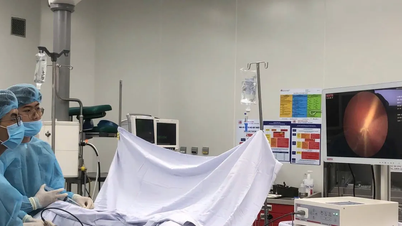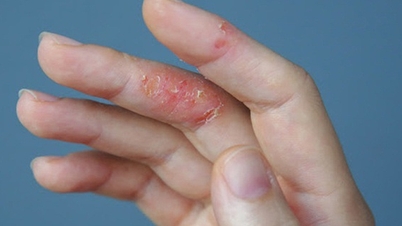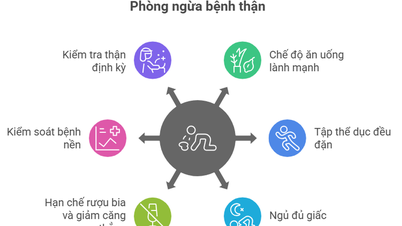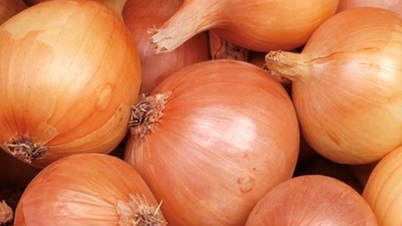According to data from the Vietnam Customs Department, the export turnover of fruits and vegetables in the first quarter of 2025 reached 1.164 billion USD. Of which, Vietnam's grapefruit export turnover reached more than 17.5 million USD, an increase of 60.6% over the same period.
To date, fresh Vietnamese grapefruit has been exported to 12 countries and territories, ranking among the top 10 fruit and nut products with the highest export turnover of our country.
Vietnamese grapefruit was given 10/10 points for deliciousness by US Deputy Secretary of Agriculture Alexis Taylor during her visit to Vietnam in early 2023.
“Awesome, 10/10. I look forward to seeing this grapefruit in stores in the US and buying it as a local consumer,” she shared.
In the US, Vietnamese grapefruit is considered to have moderate sweetness, is easy to separate segments, is more suitable for consumers' taste, is not bitter and is dry.

Vietnamese grapefruit has high nutritional value and export value (Photo: Huu Nghi)
Fruit with many uses
In Vietnam, grapefruit is a large tree, averaging 3-4 m in height when mature. The bark is light yellow, the fruit is large and spherical, with thick skin, and the color depends on the variety.
Since ancient times, people have used grapefruit leaves boiled with other aromatic leaves to steam to treat colds and headaches. Grapefruit peels treat indigestion, stomachaches, or to cook grapefruit tea. Grapefruit seed peels can be extracted to obtain pectin as a hemostatic medicine. Grapefruit juice is used to treat diabetes and vitamin C deficiency. Grapefruit seed charcoal powder can be used to treat impetigo in children...
In addition to its medicinal uses, grapefruit is also a fruit with high nutritional value, containing a lot of water, few calories, and many minerals such as vitamin C, vitamin B6, potassium, magnesium and fiber to help strengthen resistance, prevent colds, fever, infections and other diseases.
With its high fiber content, grapefruit also has the ability to improve bowel movements, especially for people with digestive problems.
Grapefruit contains a high amount of potassium which helps promote easy blood circulation. This micronutrient helps reduce stress in the circulatory system, helps the blood and heart function optimally, reducing the risk of heart attack or stroke. In addition, potassium also helps strengthen bones, avoiding the risk of osteoporosis in old age.
In addition, vitamin C, abundant in grapefruit, is a powerful antioxidant that helps destroy free radicals that cause skin to age faster. Meanwhile, vitamin P enhances the function of pores, helps heal skin wounds quickly, and has a beautifying effect on the skin.
In addition, grapefruit contains an enzyme - carnitine palmitoyltransferase, which helps eliminate fat, supporting the weight loss process.
Who should not eat grapefruit?
Grapefruit is a fruit that is loved by many people because of its refreshing taste and high nutritional value. However, although it is beneficial for health, grapefruit still has potential risks if used improperly, especially when used in combination with some types of medication.
According to Oriental medicine, grapefruit has a cooling effect. However, this characteristic can be harmful to people with a "cold" constitution, weak digestive system or diarrhea.
Eating grapefruit in this condition can aggravate the symptoms, causing stomach pain, cold stomach, and even digestive disorders. People who are physically weak or have a weak constitution should not eat too much grapefruit at one time.
One of the lesser-known risks is grapefruit's effect on the way the body metabolizes drugs.
Several studies have shown that grapefruit and grapefruit juice can inhibit the activity of the CYP3A4 enzyme in the liver - this enzyme is responsible for metabolizing many drugs. When this enzyme is inhibited, the concentration of drugs in the blood can increase abnormally, thereby causing serious side effects.
People taking cholesterol-lowering drugs (statins) such as simvastatin when drinking grapefruit juice may increase the risk of muscle damage, muscle pain, and even kidney failure.
Some patients taking certain anti-allergy medications, if they eat grapefruit or drink grapefruit juice, can experience mild headaches, heart palpitations, arrhythmias, and severe cases can lead to sudden death.
In addition, some ingredients when combined with grapefruit can cause side effects such as cyclosporine (an immunosuppressant commonly used after organ transplants), caffeine, calcium antagonists, cisapride (a drug to treat gastric reflux)...
Therefore, patients taking the above medications, especially the elderly, should not eat grapefruit or drink grapefruit juice, even a few hours before or after taking the medication.
Source: https://dantri.com.vn/suc-khoe/loai-qua-viet-duoc-thu-truong-bo-nong-nghiep-my-cham-1010-diem-20250513065023191.htm





































































































Comment (0)